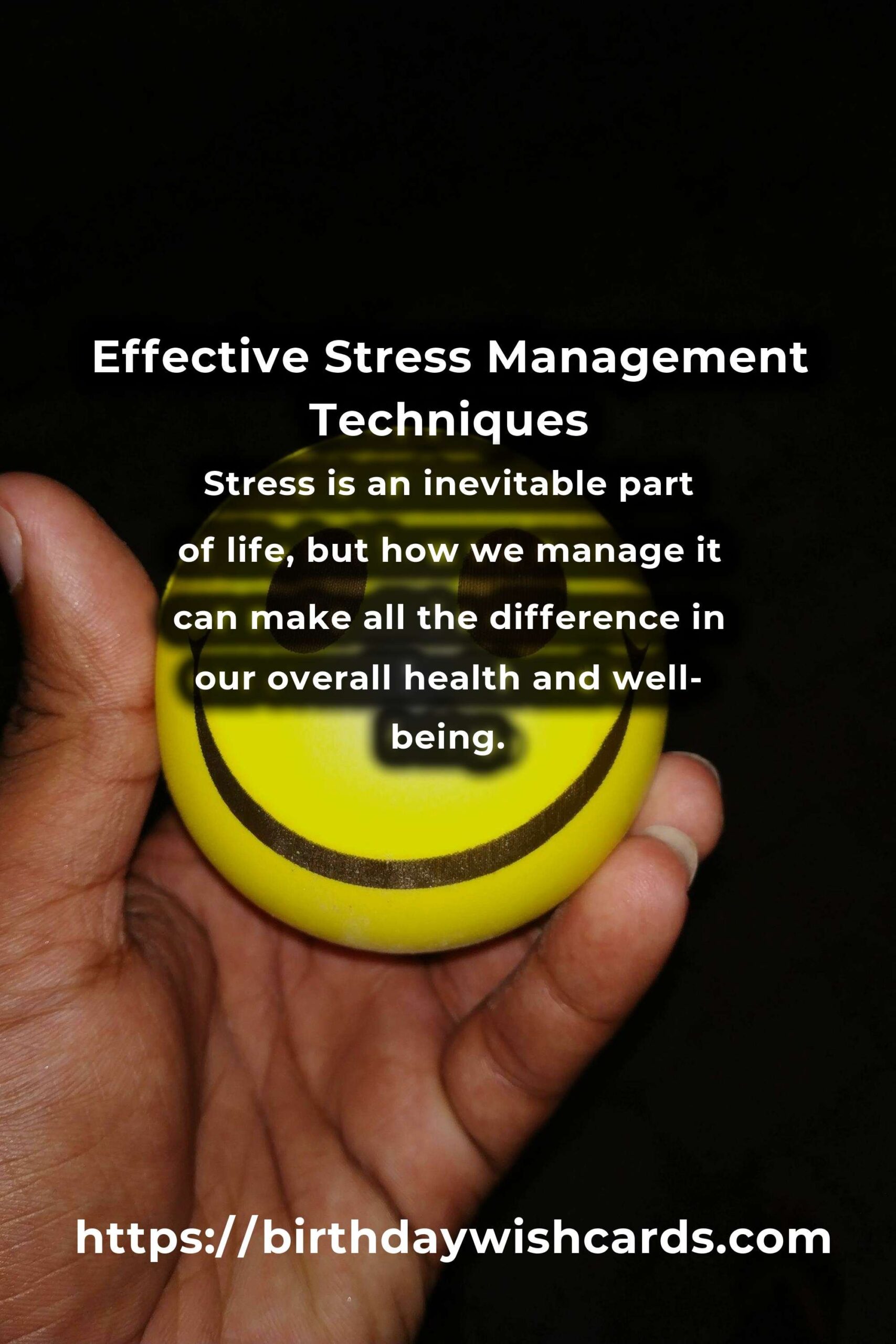
Stress is an inevitable part of life, but how we manage it can make all the difference in our overall health and well-being. In this article, we explore ten effective strategies for managing and reducing stress, helping you lead a more balanced and fulfilling life.
1. Practice Mindfulness Meditation
Mindfulness meditation involves focusing your attention on the present moment, which can help reduce stress and improve overall mental health. By dedicating just a few minutes each day, you can cultivate a sense of calm and clarity, allowing you to better handle life’s challenges.
2. Engage in Regular Physical Activity
Exercise is a powerful stress reliever that releases endorphins, the body’s natural mood enhancers. Whether it’s a brisk walk, a yoga session, or a high-intensity workout, regular physical activity can help reduce stress levels and improve your mood.
3. Develop a Healthy Sleep Routine
Getting enough quality sleep is crucial for stress management. Establish a bedtime routine that promotes relaxation, such as reading a book or taking a warm bath, and aim for 7-9 hours of sleep each night to help your body and mind recover from the day’s stresses.
4. Cultivate a Supportive Social Network
Having a strong support system can make a significant difference in how you manage stress. Make time for friends and family, and don’t hesitate to seek support when you need it. Sharing your feelings with others can provide comfort and help you gain new perspectives on stressors.
5. Practice Deep Breathing Exercises
Deep breathing exercises can help calm your nervous system and reduce stress. Try taking slow, deep breaths, focusing on filling your lungs and then slowly exhaling. This simple technique can be practiced anywhere and anytime you feel overwhelmed.
6. Set Realistic Goals and Priorities
Overcommitting and unrealistic expectations can lead to stress and burnout. Learn to set attainable goals and prioritize your tasks, focusing on what truly matters. By breaking down larger tasks into smaller, manageable steps, you can reduce stress and feel more in control.
7. Maintain a Balanced Diet
A healthy diet can have a profound effect on your stress levels. Consuming a balanced mix of fruits, vegetables, lean proteins, and whole grains can provide the nutrients your body needs to cope with stress effectively. Avoid excessive caffeine and sugar, as they can exacerbate stress.
8. Engage in Creative Activities
Creative activities such as painting, writing, or playing an instrument can serve as an excellent outlet for stress. Engaging in creative expression allows you to focus on something enjoyable, which can distract you from stressors and promote relaxation.
9. Practice Time Management
Effective time management can help reduce stress by preventing last-minute rushes and ensuring that you have time for relaxation and self-care. Use tools like planners or digital calendars to organize your schedule and allocate time for each task.
10. Seek Professional Help When Needed
If stress becomes overwhelming and unmanageable, seeking help from a mental health professional can be beneficial. Therapists can provide you with coping strategies and support, ensuring that stress does not negatively impact your mental health.
By incorporating these stress management ideas into your life, you can achieve a greater sense of balance and well-being. Remember, managing stress is an ongoing process, and it’s essential to find what works best for you.
Stress is an inevitable part of life, but how we manage it can make all the difference in our overall health and well-being. Mindfulness meditation involves focusing your attention on the present moment, which can help reduce stress and improve overall mental health. Exercise is a powerful stress reliever that releases endorphins, the body’s natural mood enhancers. Getting enough quality sleep is crucial for stress management. Having a strong support system can make a significant difference in how you manage stress. Deep breathing exercises can help calm your nervous system and reduce stress. Learn to set attainable goals and prioritize your tasks, focusing on what truly matters. A healthy diet can have a profound effect on your stress levels. Creative activities such as painting, writing, or playing an instrument can serve as an excellent outlet for stress. If stress becomes overwhelming and unmanageable, seeking help from a mental health professional can be beneficial.
#StressManagement #WellBeing #Mindfulness #Exercise #Sleep #SupportSystem #BreathingExercises #HealthyDiet #Creativity #TimeManagement #ProfessionalHelp

